Grand Canyon University NRS-433V: Professionalism and Social Media
VerifiedAdded on 2022/10/18
|5
|823
|7
Report
AI Summary
This report delves into the complex relationship between social media and nursing professionalism. It highlights how healthcare professionals, particularly nurses, utilize social media for both personal and professional purposes, including accessing information and networking. The report emphasizes the potential risks associated with social media use, such as breaches of patient confidentiality, violations of nursing ethics, and unprofessional conduct. It discusses the implications of these actions on patient-nurse relationships and the importance of upholding standards of conduct. The report also references the Health Insurance Portability and Accountability Act (HIPAA) and its role in protecting patient privacy. The report concludes by advocating for the responsible use of social media in healthcare, with a focus on making professional connections and avoiding the sharing of sensitive patient information.
1 out of 5
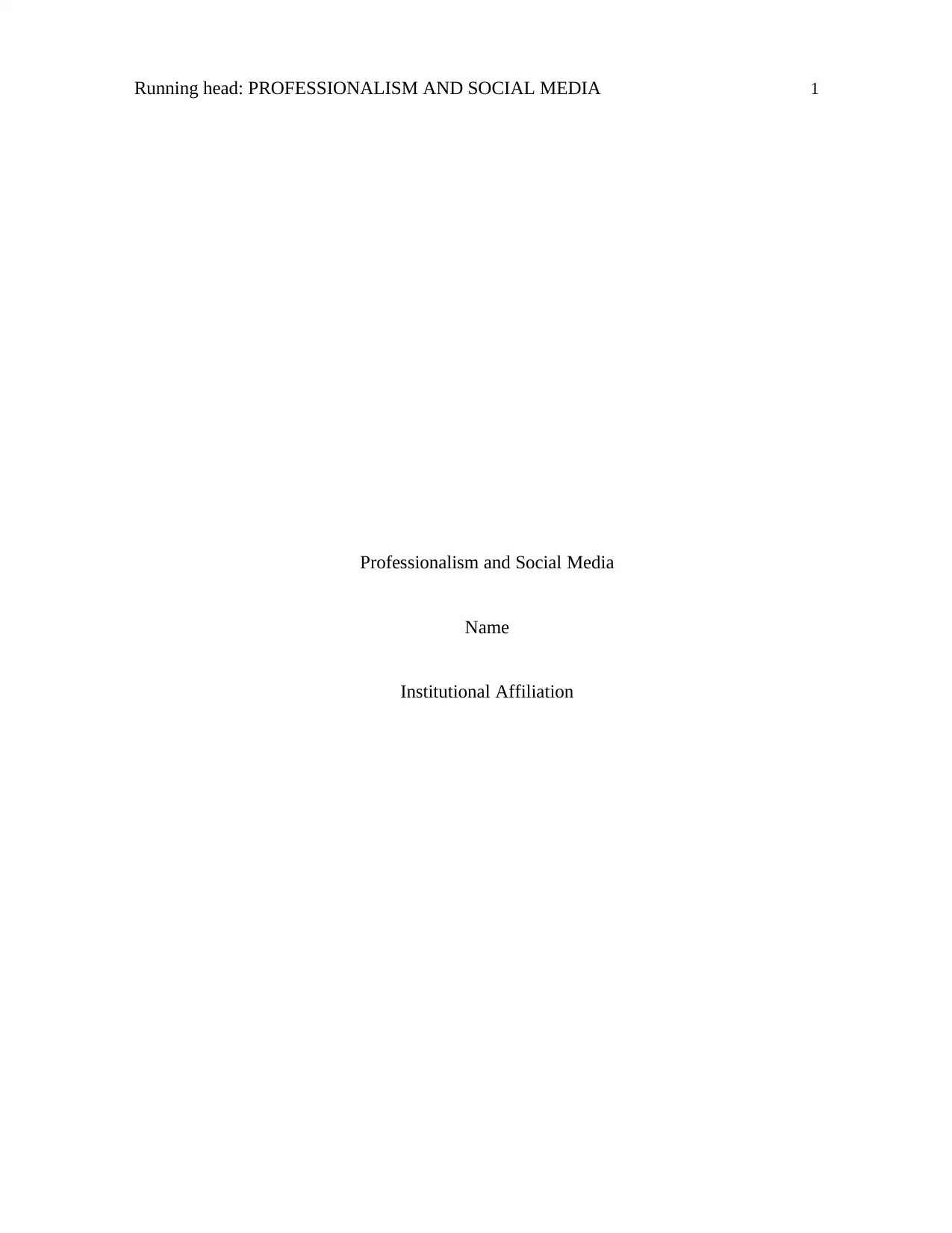
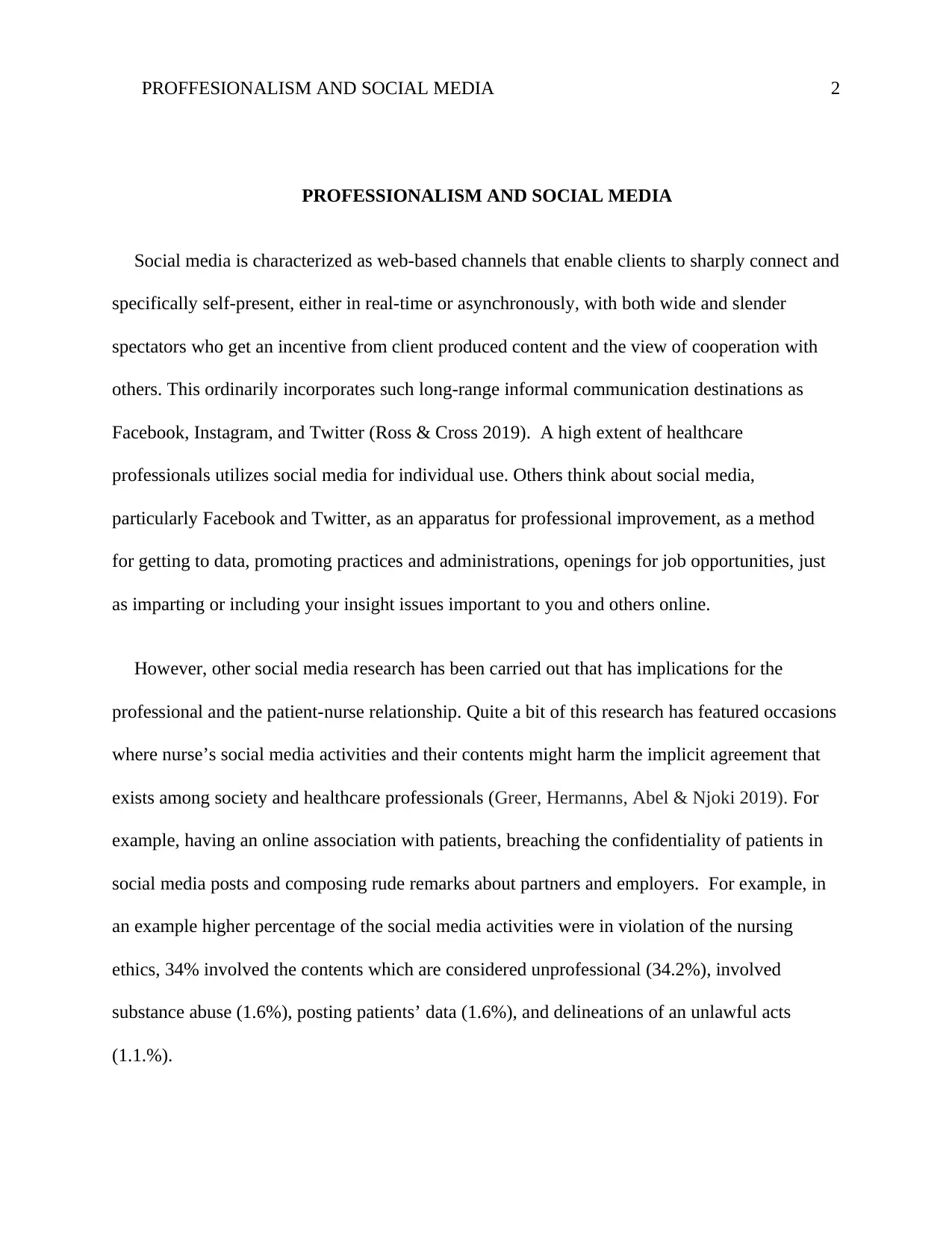
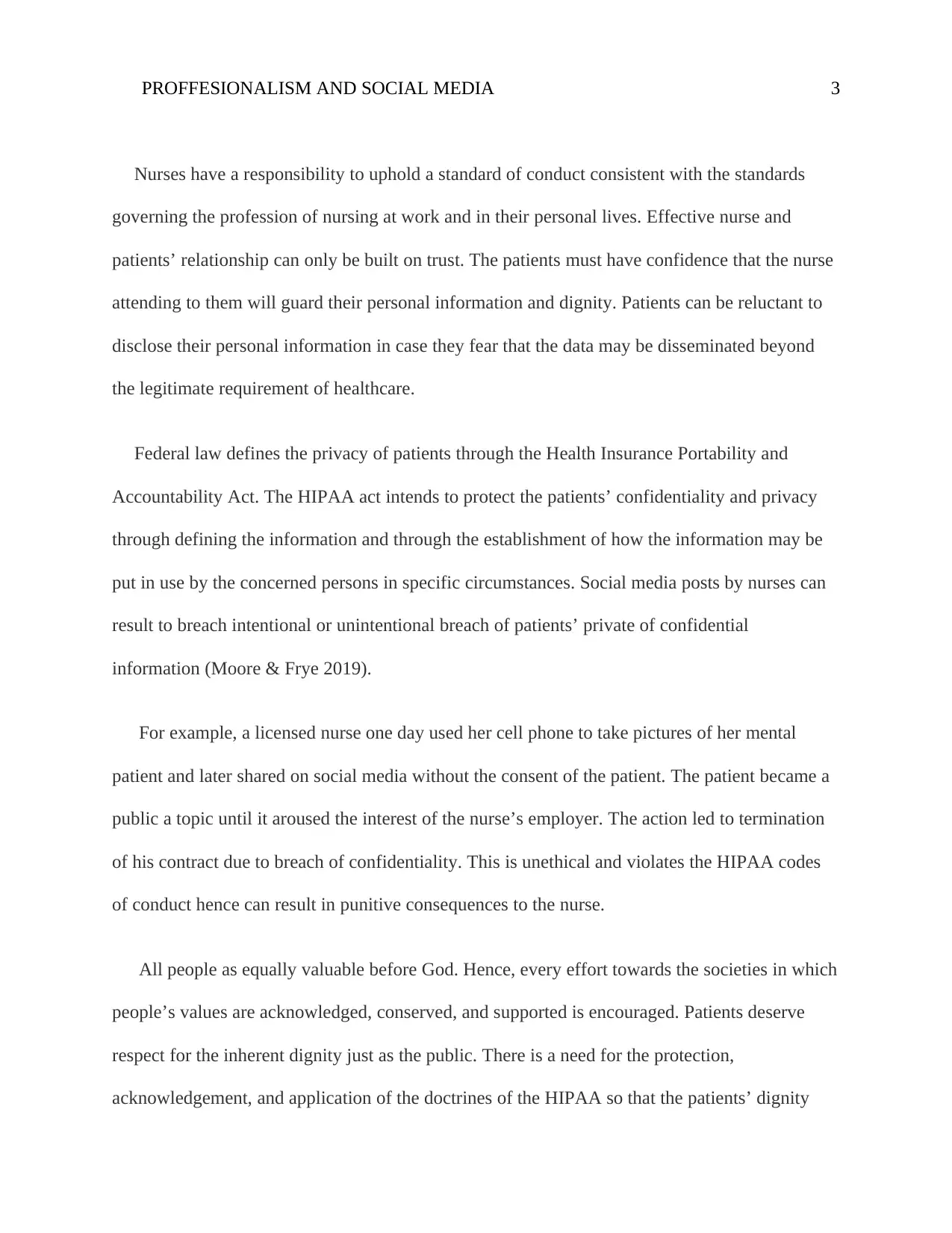

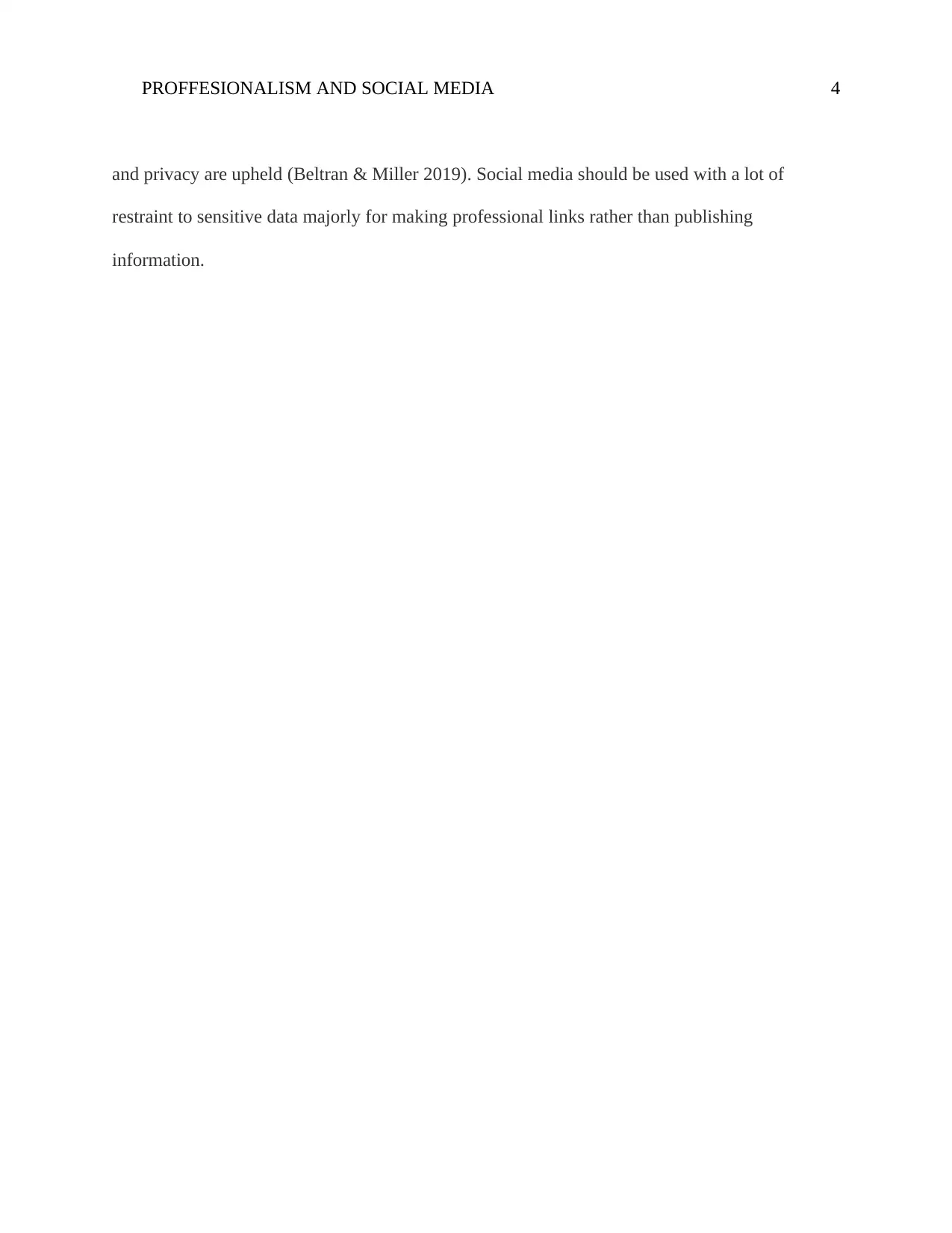
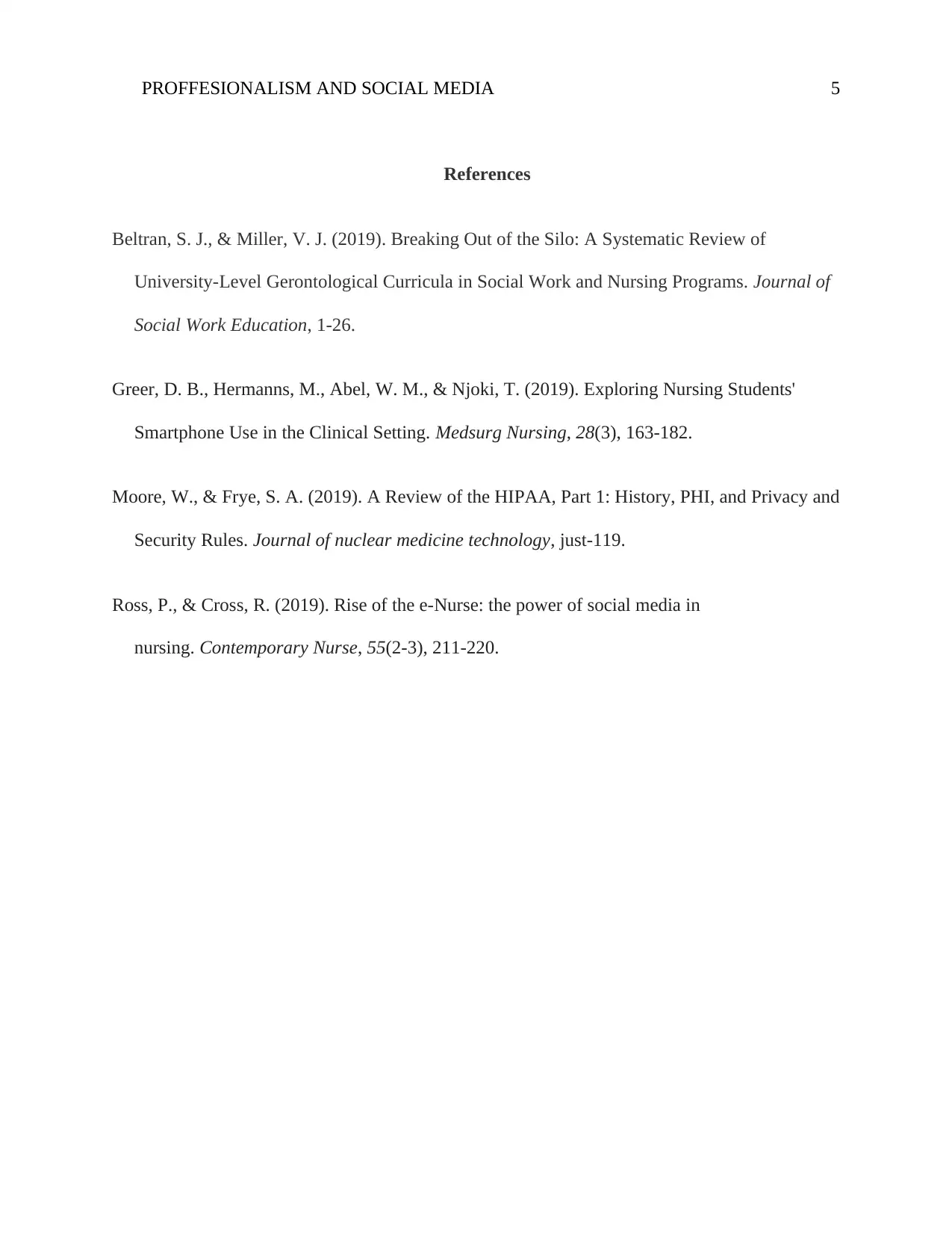






![[object Object]](/_next/static/media/star-bottom.7253800d.svg)